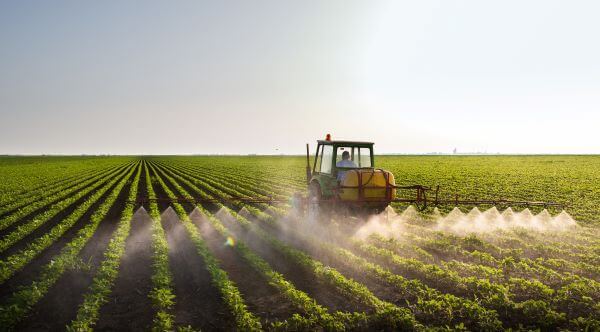Don’t let the rising cost of fertiliser leave your farm under-insured

The cost of fertiliser has been rising rapidly, with prices more than doubling over the course of a year, and farms could be in danger of leaving themselves under-insured if they don’t act soon.
A perfect storm of transport issues due to Brexit, the closure of fertiliser plants, the rising cost of gas and low availability of mined salts has created a price bubble which is further exacerbated by scarcity.
This is likely to be exacerbated further by the war in Ukraine, which is adding to the fuel crisis as sanctions against Russia add complexity to the market.
Just 18 months ago fertiliser was sold at £250 per tonne, but the price has now reached £600t and there are reports of it nearing £700t in some regions and still rising.
Fertiliser is made up of nitrogen, phosphate and potash, with nitrogen the main ingredient. So, when gas prices spike, it causes a knock-on effect.
In addition, two of the main fertiliser producers in Britain – Yara and CP Fertilisers – had to cease production temporarily, leading to a CO2 shortage. CO2 is a by-product of fertiliser production and is also needed for abattoirs. Production only re-started when the government stepped in.
Depleted supplies of phosphate and potash are also an issue. These are mined nutrients which are vital in fertiliser production.
Brexit has had an impact on the logistic industry, too, adding complexities to the supply and distribution chain.
Prices always fluctuate, of course, but nobody is currently predicting that the cost of fertiliser will dip soon. Not until gas prices drop, too, and supplies flow more quickly.
What are the insurance implications of these price rises?
It’s important that rural businesses review their sums insured. In particular, deadstock/loss of revenue/property and machinery values. These will likely now be inaccurate, so if there was a claim ‘averaging’ could apply.
With a weak supply chain in the current market – and added complications caused by Brexit and the war in Ukraine – this is a situation which should be predictable in a risk assessment. When items are scarce it drives up prices.
There is also a business continuity issue here, too, because if fertiliser continues to be scarce it will affect future yields. When you combine lower yield and higher prices, inevitably that means lower profit.
In all this, communication with your insurer is key to keeping your insurance accurate and comprehensive. A broker with expertise in the market, such as A-Plan Rural, will be able to provide you with advice on the matter.
For more information visit www.aplan.co.uk/rural.







